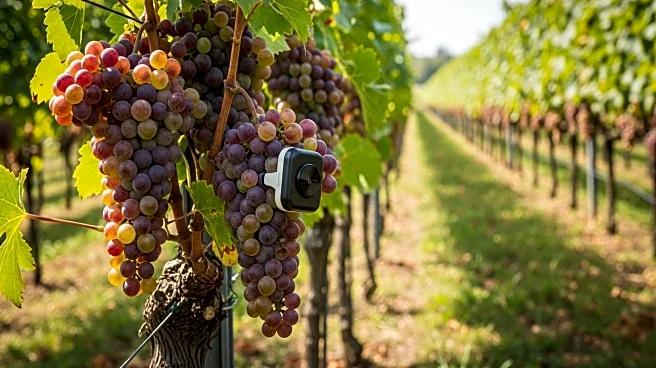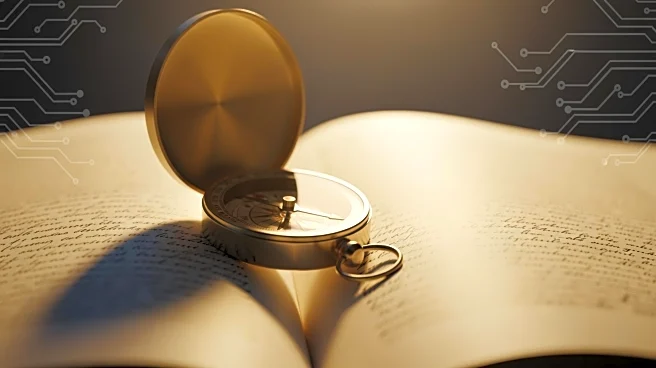What's Happening?
The wine industry is increasingly integrating data analytics and artificial intelligence (AI) to enhance traditional winemaking practices. At the Vine to Mind conference, organized by EHL Hospitality Business School and the Harvard Data Science Initiative, experts discussed the role of data science in viticulture. The conference highlighted how data can aid in yield forecasting and plant health, with examples such as using historical weather data to predict and mitigate the impact of heatwaves on grape production. Despite the industry's traditional nature, there is a growing recognition of the benefits of data literacy and AI in improving decision-making processes. However, challenges remain, including data integration, resource constraints, and reluctance to adopt new technologies.
Why It's Important?
The integration of data analytics and AI in the wine industry represents a significant shift towards modernizing traditional practices. This evolution could lead to more efficient production processes, better quality control, and improved market responsiveness. For U.S. wineries, particularly in regions like Napa Valley, embracing these technologies could enhance competitiveness and sustainability. The ability to predict weather impacts and manage plant health more effectively can reduce losses and improve the quality of wine, benefiting both producers and consumers. However, the industry's conservative nature and the complexity of integrating new technologies pose challenges that need to be addressed to fully realize these benefits.
What's Next?
The next iteration of the Vine to Mind conference is scheduled to take place in Napa Valley, California, in 2026. This event will likely continue to explore the intersection of data science and winemaking, providing a platform for further discussions on overcoming the challenges of technology adoption in the industry. As more wineries begin to see the value of data-driven decision-making, there may be increased investment in data literacy and AI tools. Stakeholders, including technology providers and educational institutions, will play a crucial role in facilitating this transition by offering solutions that are accessible and practical for winemakers.
Beyond the Headlines
The adoption of data analytics and AI in winemaking raises questions about the balance between technology and artistry. While data can enhance efficiency and quality, there is a concern that it might dilute the traditional craftsmanship associated with winemaking. This tension highlights the need for a nuanced approach that respects the cultural and artistic aspects of the industry while embracing technological advancements. Additionally, the ethical implications of data usage, such as privacy and data ownership, will need to be addressed as the industry moves forward.










